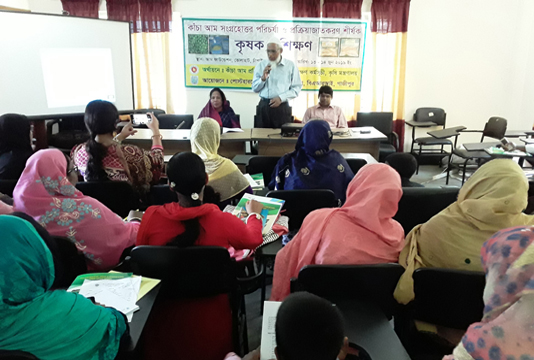RAJSHAHI, June 19, 2019 (BSS) – A total of 60 more people including 30 women were imparted need-based training on proper processing and preservation of green mangoes fell from stalk before maturity due to various reasons considering their economic value.
Postharvest Technology Division (PTD) of Bangladesh Agriculture Research Institute (BARI) organized the two-day training on “Green Mango Postharvest Handling and Processing” at Training Room of Volahat Upazila Agriculture Extension Office here.
The program has been organized aimed at training up the people on diversified use of green mango for developing different value added products side by side with increasing shelf life of green mango for longer consumption and generating income and employment opportunity in agro-processing industry.
Chief Scientific Officer of PTD Dr Miaruddin and its Programme Director Dr Golam Ferdous Chowdhury addressed the closing ceremony yesterday as focal resource persons while Upazila Agriculture Officer Shariful Islam was in the chair.
Upazila Vice-chairman Shahnaj Parveen, Zila Parishad Member Hosne Ara, President of Mango Foundation Mozammel Haque also spoke on the occasion.
The speakers mentioned every year huge quantities of green mango drop immaturely due to storm or other natural calamities before harvesting time causing huge financial loss to the growers.
There are many scopes of processing and preserving the fallen mangoes through adopting modern technologies to recover the financial loss of the growers, they said. Dr Miaruddin said proper handling, processing, packaging, transportation and storage can help loss of substantial amount of immature mango every year.
He laid importance on disseminating the knowledge on the technologies developed by PTD for processing green mangoes and expanding those at growers’ level.
In the two-day training, the participants were given practical ideas and knowledge on preparing processed products like mango juice, mango bar, pickles, dried mango products, dehydrated and canned mango products.
The people including mango growers both male and female, mango-related small-traders, school teachers and government and non-government officials joined the training in two batches.



